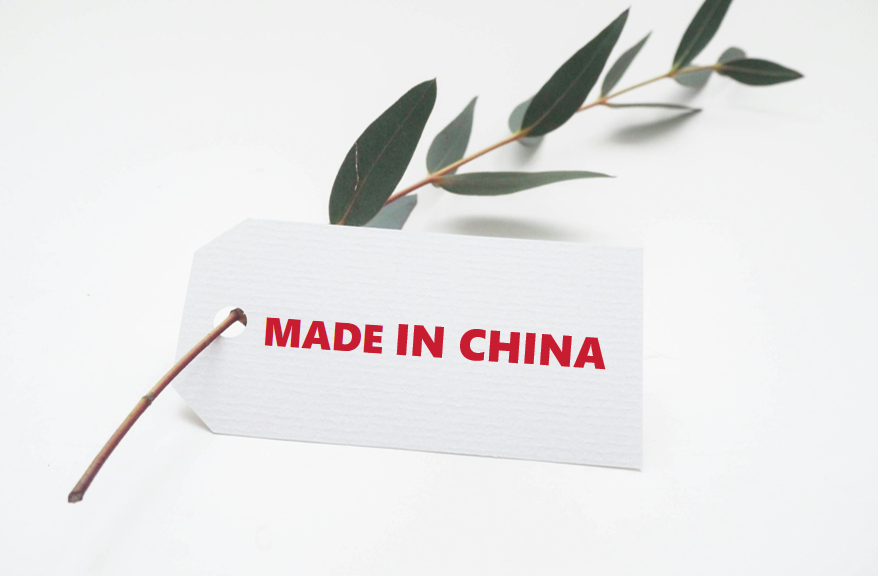Ve a trouvé le plus impressionnant sur les fabricants chinois est leurCapacité d'être flexible. Lorsque j'ai commencé à s'approvisionner en produits, j'ai été étonné de la rapidité avec laquelle les usines chinoises pouvaient s'adapter aux changements, des spécifications ou des quantités.Capacité d'être flexibleLignes de production adaptablesCapacité d'être flexibleContrairement à certaines usines d'autres pays, les fabricants chinois sont souvent en mesure de modifier leurs lignes de production pour accueillir de nouvelles conceptions ou modifications. Si j'ai besoin d'une nouvelle fonctionnalité ajoutée à un produit, ce n'est pasCapacité d'être flexibleT Prenez des semaines de va-et-vient pour le comprendre. La flexibilité pour apporter ces changements rapidement est l'une des raisons pour lesquelles je reviens aux fournisseurs chinois.Capacité d'être flexibleSolutions sur mesure
Les fabricants de S sont également excellents pour offrir
Solutions personnaliséespour les produits uniques. SiS Couleurs, tailles ou fonctionnalités spécifiques, les fabricants chinois sont habitués à travailler avec des clients internationaux qui ont des besoins spécifiques.Capacité d'être flexible6. Contrôle de la qualité et normes mondiales
Maintenant, c'est
est une idée fausse commune que tout ce qui est fait en Chine estCapacité d'être flexiblequalité basse
. Que
s tout simplement plus vrai. Bien qu'il y ait eu des problèmes de contrôle de la qualité dans le passé,
aujourd'huiLes fabricants chinois répondent aux normes internationales.Capacité d'être flexibleRéunion des certifications de qualité
La Chine abrite d'innombrables usines qui adhèrent à
ISOCapacité d'être flexibleNormes et autres certifications internationales. SiLes jouets S, l'électronique ou les vêtements, les usines chinoises sont plus que capables de produire des marchandises qui répondent aux normes de qualité la plus élevée.L'usine avec laquelle je travaille, par exemple, est certifiée pour rencontrer les deuxCapacité d'être flexibleISO 9001
et
CENormes, en veillant à ce que leurs produits soient non seulement bien faits mais également sans danger pour les consommateurs.7. Le facteur de commerce électronique: plus facile que jamais à la source de produits
La montéeCapacité d'être flexibleplates-formes de commerce électroniqueCapacité d'être flexibleComme Alibaba et Made-in-China.com a facilité la connexion des entreprises avec les entreprises chinoises. Ces plateformes vous permettent de comparer les prix, la qualité et les avis en un seul endroit, ce qui rend l'approvisionnement en Chine beaucoup plus accessible.Capacité d'être flexibleUne histoire personnelle: trouver le bon fournisseur
Quand j'ai commencé à m'approvisionner en Chine, c'était un peu écrasant. Il y avait tellement d'options, et il était difficile de savoir à qui faire confiance. Mais après avoir fait des recherches sur Alibaba et examiné les commentaires d'autres acheteurs, j'ai trouvé un fournisseur qui répond parfaitement à mes besoins. Les plates-formes de commerce électronique ont rendu l'ensemble du processus plus simple et plus transparent.
8. Considérations éthiques: durabilité et pratiques de travailCapacité d'être flexibleBien sûr, il y a des inquiétudes en ce qui concerne les conditions de travail et la durabilité dans les usines chinoises. En tant que ChineL'industrie manufacturière continue de croître, elleS de plus en plus important pour les acheteursCapacité d'être flexibleSourcing éthiqueCapacité d'être flexiblepratiques.Chine's poussée pour la durabilité
Heureusement, de nombreuses usines chinoises commencent à répondre à ces préoccupations. je
8. Considérations éthiques: durabilité et pratiques de travailCapacité d'être flexibleVe a vu de plus en plus de fabricants investir dansCapacité d'être flexibleGreen TechnologiesCapacité d'être flexiblepratiques de travail équitables. Làest un mouvement croissant en Chine pour répondre aux normes internationales environnementales et éthiques.
s Dominance continue dans la fabrication
8. Considérations éthiques: durabilité et pratiques de travailCapacité d'être flexibleAlors, pourquoi tout est-il fait en Chine? La réponse se résume au coût, à l'expertise, aux infrastructures, au soutien du gouvernement et à la capacité de répondre à la demande mondiale avec flexibilité et efficacité. La Chine est devenue l'endroit idéal pour la fabrication non seulement à cause de la main-d'œuvre bon marché, mais en raison de la haute qualité, de la vitesse et de la variété qu'elle offre.
La montéeCapacité d'être flexiblePour l'avenir, la Chine est prête à se déplacer encore plus vers la fabrication de haute technologie et de haute qualité. Pour les entreprises qui cherchent à trouver des produits, la Chine reste une option incroyablement attrayante. Si tuCapacité d'être flexibleResidérant les jouets, l'électronique ou toute autre chose, ou toute autre chose,
Travailler avec un fournisseur fiable en Chine
, commeCapacité d'être flexibleSyndicat de marché(un fournisseur de confiance basé en Chine), peut rationaliser votre processus d'approvisionnement, garantir la qualité, la rentabilité et la fiabilité.Capacité d'être flexibleS Support proactif de l'industrie. Au fil des ans, le gouvernement chinois a mis en place des politiques et des incitations qui rendent attrayant les entreprises locales et internationales d'y mettre en production.
Incitations et subventions fiscales
Des allégements fiscaux aux subventions pour les fabricants, la ChineCapacité d'être flexibleLes politiques S sont conçues pour faciliter la production de marchandises à moindre coût et efficacement. Ces incitations attirent les entreprises étrangères à s'installer, créant une boucle de rétroaction positive qui renforce encore plus la fabrication.
5. Flexibilité et personnalisation: répondre à la demande mondiale
Une des choses que jeCapacité d'être flexible
Capacité d'être flexible
8. Considérations éthiques: durabilité et pratiques de travailCapacité d'être flexibleCapacité d'être flexible
Capacité d'être flexibleCapacité d'être flexibleCapacité d'être flexible
Capacité d'être flexible
Capacité d'être flexibleCapacité d'être flexible
Capacité d'être flexibleCapacité d'être flexible
Capacité d'être flexible
 Femmes de sport
Femmes de sport
 Hommes Vêtements actifs
Hommes Vêtements actifs
 Hommes en plein air masculins
Hommes en plein air masculins
 Vêtements en plein air des femmes
Vêtements en plein air des femmes
 Sports d'équipe
Sports d'équipe
 Sports Shaper & Sports Safety
Sports Shaper & Sports Safety
 Camping et randonnée
Camping et randonnée
 Boxing Fighting & Dance Gymnastics
Boxing Fighting & Dance Gymnastics
 Salle de jeux et arrière-cour
Salle de jeux et arrière-cour
 Natation et plage
Natation et plage
 Accessoires sportifs et extérieurs
Accessoires sportifs et extérieurs
 Vélo
Vélo
 Sports d'hiver
Sports d'hiver
 Sports de raquette
Sports de raquette
 Sports nautiques
Sports nautiques
 Chasse
Chasse
 Aptitude
Aptitude
 Pêche
Pêche












































